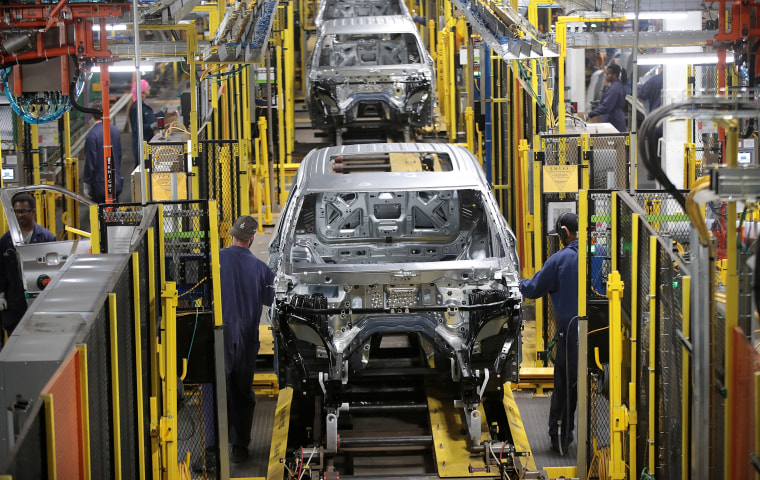A worsening shortage in semiconductor chips is forcing automakers to further curb vehicle production, potentially short-circuiting the industry’s attempt to recover from the pandemic. The chip scarcity is even starting to impact other industries, with South Korea’s Samsung Electronics this week warning it is “closely watching the implications," warning it could hit production of its smart phones.
Ford said Thursday it would temporarily idle two of three shifts at its Chicago Assembly Plant next week, a move that will impact a sizable share of the factory’s 5,300 hourly employees. Ford also extended a plant closure in Louisville, Kentucky, for at least another week.
Today’s vehicles are essentially computers on wheels, using hundreds of microprocessors and other chips to regulate their powertrains, control infotainment systems and operate the latest digital safety systems.
As auto production and demand for chips slumped sharply during pandemic lockdowns, the need for microchips for the consumer electronics industry surged as millions of people were forced to work and shop from home, buying new smartphones, computers, web cameras and other digital devices.
Now, the auto industry is racing to recover, accelerating production to refill depleted vehicle inventories. But a report released this month by Bloomberg estimated that Detroit automakers alone could lose as much as $61 billion in revenues this year if the chip shortage continues.
The impact of the crisis varies by manufacturer. General Motors said it has so far faced no closures or slowdowns — but Toyota, Volkswagen, Honda, Mercedes-Benz, Audi, Subaru and Nissan have all made cutbacks in the U.S. or other parts of the world. Stellantis, the new industry giant formed by the merger of Fiat Chrysler Automobiles and France’s PSA Group, currently has two North American plants closed.
Ford has been one of the hardest hit.
The second-largest U.S. automaker will idle two of three shifts at the Chicago plant producing the popular — and highly profitable — Explorer SUV. Spokesperson Kelli Felker said the exact number of workers being affected has not been determined, but the factory employs 5,300 hourly workers and hundreds more on salary.
The closure is scheduled to last for a week but, in a letter sent to workers and obtained by the Detroit Free Press, local union leader Coby Millender said that he has been advised there is “a strong potential for additional weeks” of closure if Ford can’t come up with more chips quickly.
Ford has already extended the complete shutdown of the Louisville plant producing another popular SUV, the Escape.
“It is a really fluid situation and I couldn’t predict what’s ahead for us,” Felker said, quoting a separate company statement that said Ford is “working closely with suppliers” to resolve shortages.
